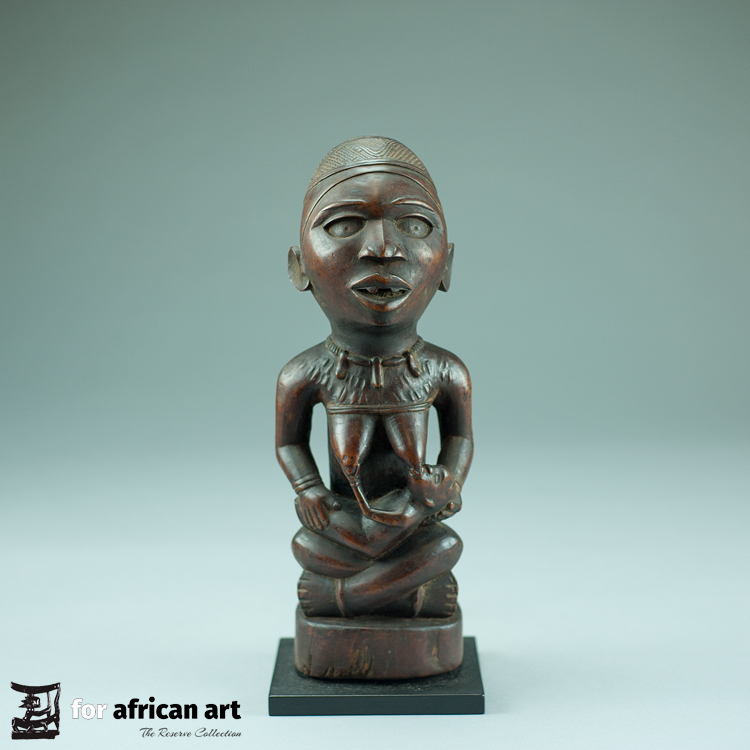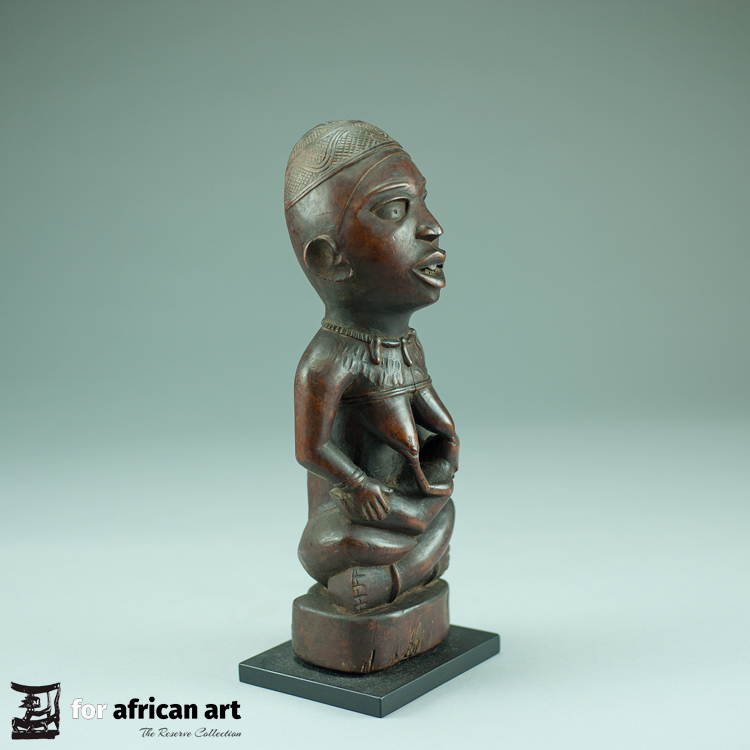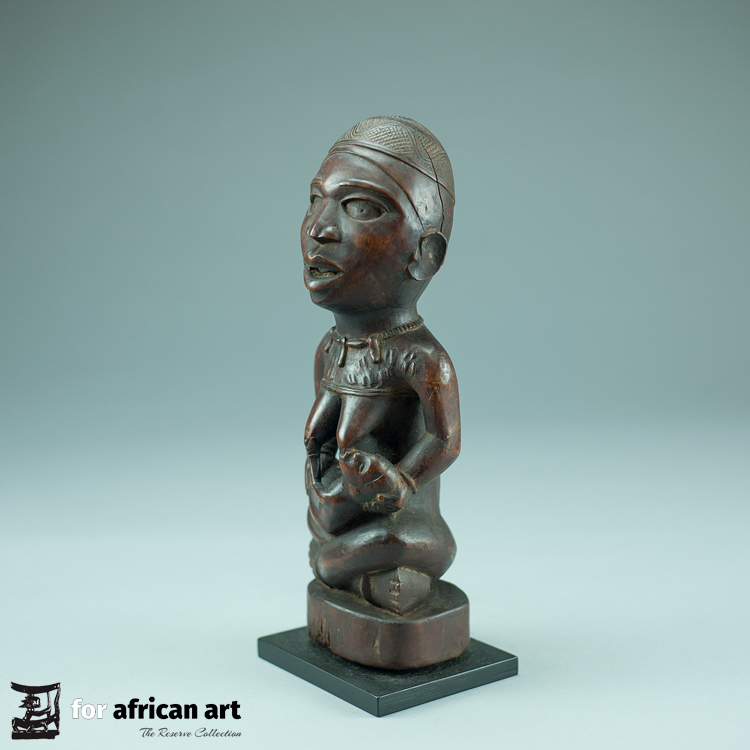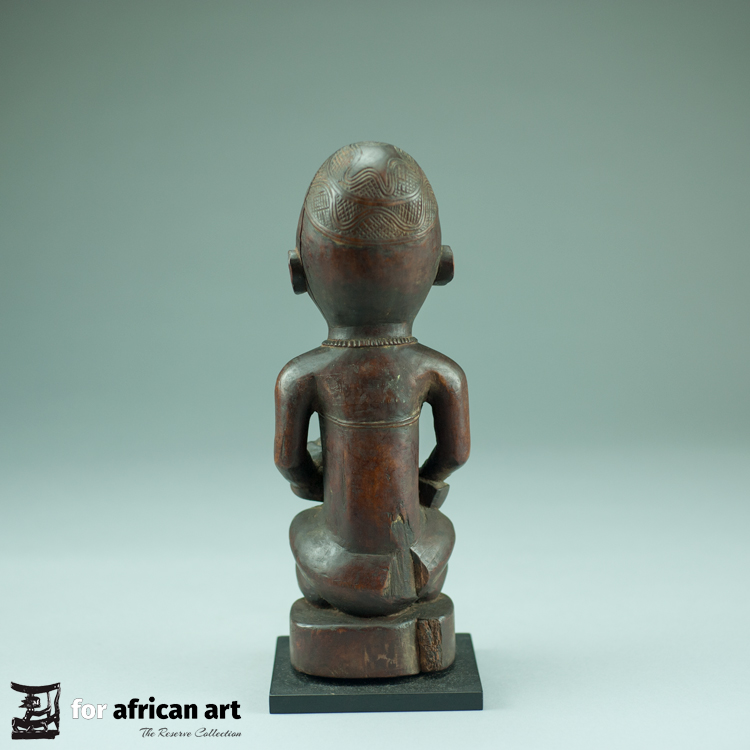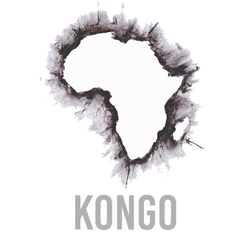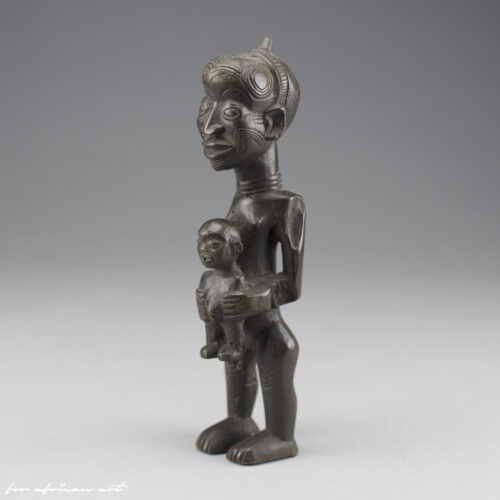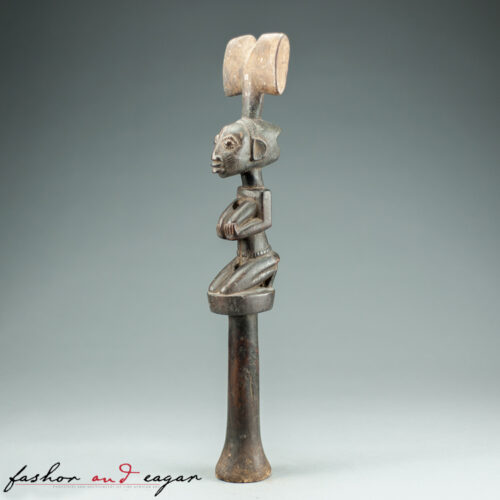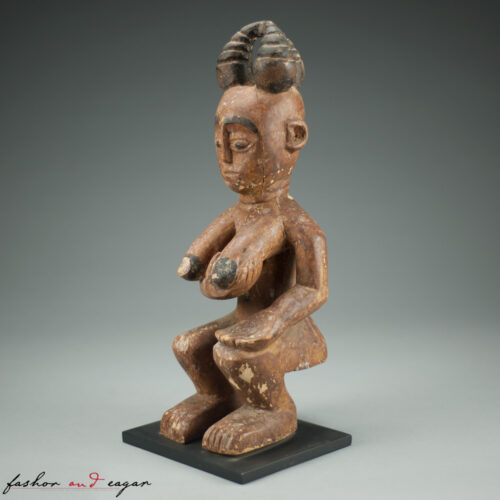Details

ITEM #:
2713 Pfemba
ETHNICITY:
BaKongo Mayombe
ORIGIN:
Democratic Republic of Congo
MEDIUM:
Wood.
DIMENSIONS:
13.5″ Tall (34.3 cm)
CONDITION:
Very Good.
AGE:
Estimated Late 19th to early 20th Century.

PROVENANCE:
Jean Pierre Hallet Estate Collection – California, USA.

CATALOGUE NOTE:
This maternity figure is an icon of Kongo art because of the easily recognizable theme, the classical form and excellent craftsmanship. Known as pfemba, it supersedes a simple representation of maternity theme among the Kongo. It is more of a statement of the spiritual power supporting society, the need for fertility and the promise of future generations.Closely associated with mpemba, a women’s cult said to have been founded by a famous midwife concerned with the treatment of infertility, pfemba are thought to have first been used in rituals addressing women’s infertility.
The figure is seated cross legged, nursing an infant, atop a small base. This pose conveys the prestige of high political and social status, as do a number of other details. Among the Mayombe, scarification was considered erotic and beautiful; it marked physical maturity and assured conception. Mayombe men and women from this region often had intricate patterns of scarification on their bodies, made by rubbing substances into incisions in the skin. These keloid tattoos increased a woman’s sexual appeal. In fact, without scarifications, a woman might be mocked as being “slippery as a fish.” The chest cord serves to accentuate her breasts. The chiseled teeth were also an ideal of female beauty among the Kongo. It is depicted wearing a close-fitting hat, traditionally made of knotted raffia or pineapple leaf fiber. The knitted bonnet or mpu suggests high rank. This type of cap was worn by chiefs at the time of their inauguration and by noblewomen who would give birth to future rulers. Kongo societies trace their descent through the female line of ancestors, and pfemba.
Phemba are iconic examples of Kongo art and reflect the degree to which women are treasured in Kongo culture, not just for their fruitfulness, but also as seers and guardians of the spirit.
